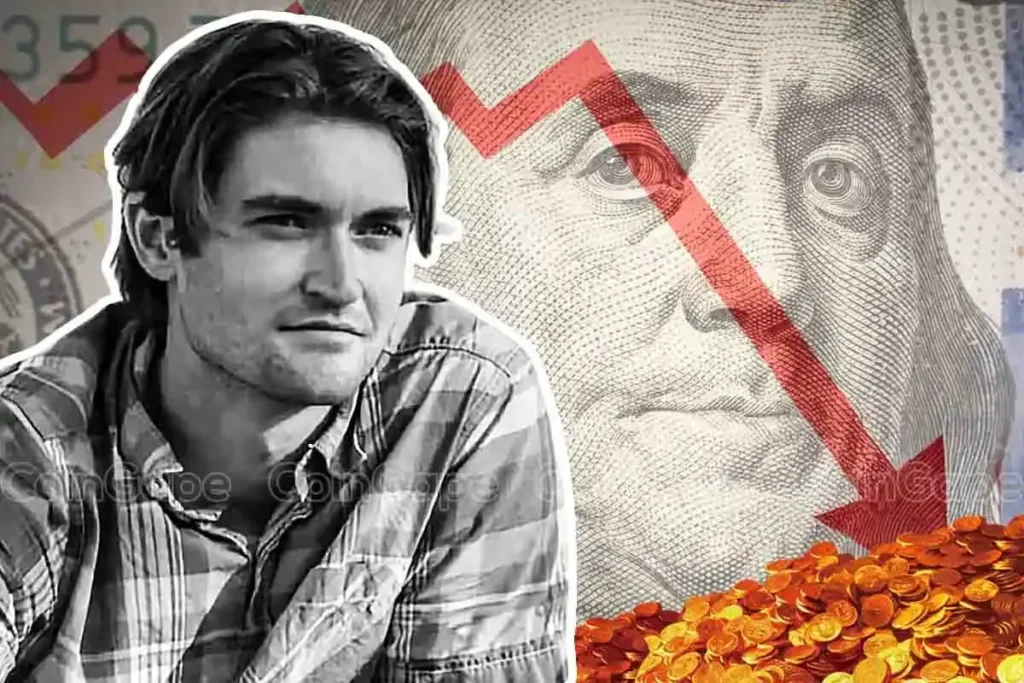Ross Ulbricht’s Auction: A $1.8 Million Bitcoin Bonanza from Prison Artifacts
Ross Ulbricht, the founder of the infamous Silk Road, has made headlines recently by earning a staggering $1.8 million in Bitcoin through the auction of personal items from his time in prison. This unprecedented move is not just about financial gain but also represents a significant moment in Ulbricht’s journey post-incarceration. In this article, we explore the auction’s details, the emotional significance of these items, and the broader implications for cryptocurrency and the digital auction market.
The Personal Items Auction
Ulbricht took the decision to auction various personal artifacts from his decade-long imprisonment. He stated, “I’ve decided to auction some personal items from before my arrest and during my time in prison. I don’t need the reminders, and I’m sure some of you will love to have them.” This statement resonates deeply, as it signals Ulbricht’s desire to turn a new chapter in his life. Among the items auctioned was his prison ID card, which attracted an impressive top bid of 11 BTC, translating to roughly $1.1 million. Such iconic memorabilia signifies the intertwining of Ulbricht’s narrative and the Silk Road saga, making these items highly sought after.
High-Stakes Bidding
The auction drew considerable attention and sparked competition among avid collectors and cryptocurrency enthusiasts. In addition to the ID card, other significant items garnered impressive bids, including Ulbricht’s prison notebook at 1.06 BTC and sneakers at 0.54 BTC. The lineup also consisted of a collection of pre-arrest personal effects, a lock from his prison locker, and even his prison sweatsuit. Despite the recent 8% crash in Bitcoin’s price, hovering around $104,000, the auction still netted Ulbricht over $1.8 million, showcasing the enduring appeal of cryptocurrency as an asset class.
The Artistic Side of Imprisonment
One of the most intriguing aspects of Ulbricht’s auction is the inclusion of oil paintings he created while in prison. Taking up art as a hobby during his incarceration, Ulbricht auctioned three pieces, with one titled "Archway" selling for 1.01 BTC and the other two collectively fetching 1.40 BTC. This artistic endeavor not only allowed him to express himself but also highlighted a different facet of his personality beyond his criminal past. It’s a poignant reminder that creativity can flourish even under restrictive conditions.
Historical Context
Before his arrest in 2013, Ulbricht amassed a significant fortune, holding 144,336 BTC derived from his Silk Road operations. His story has intrigued many, drawing attention to the dynamics between digital currencies, online marketplaces, and regulatory frameworks. The stark contrast between his prior wealth and his current auction highlights the rapidly changing landscape of cryptocurrency, punctuated by legal battles and ongoing regulatory scrutiny. Recently, Ulbricht received a presidential pardon from former US President Donald Trump, introducing a wave of hope and potential opportunities for him.
A New Era in Cryptocurrency Regulation
As Ross Ulbricht reenters society, he isn’t simply creating headlines; he’s part of a broader narrative concerning the evolving regulatory stance towards cryptocurrencies in the U.S. Recent developments indicate a move away from stringent measures against crypto mixers like Tornado Cash, hinting at a potential wave of innovation in the industry. Regulatory clarity may foster a more conducive environment for businesses, allowing creators and entrepreneurs to continue exploring the capabilities of blockchain technology.
Conclusion: Reflecting on Freedom and Redemption
Ross Ulbricht’s auction of personal items, coupled with his artistic expressions, showcases a transformative journey from confinement to freedom. The $1.8 million earned signifies not just financial recovery but also an attempt to redefine his legacy beyond the notorious Silk Road. As he embraces a new life, Ulbricht’s story serves as a reminder of the potential for redemption and reinvention in the cryptocurrency space, inspiring conversations on the human side of digital currencies and their broader implications for society. As the world watches, Ulbricht’s next steps could pave the way for a new perspective on justice, freedom, and the innovative possibilities presented by blockchain technology.















